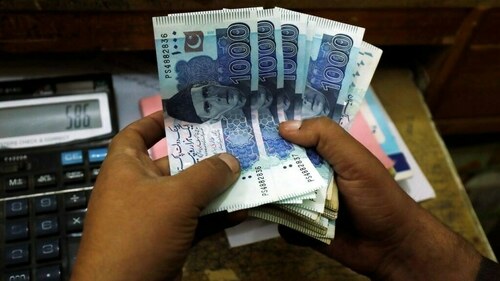Salaried Class Voices Concerns Over Finance Bill 2025-26
Representatives from Pakistan’s salaried class have voiced significant apprehension regarding the proposed measures outlined in the Finance Bill 2025-26. They believe these measures will place a disproportionate burden on the most tax-compliant segment of the population.
Over the last six fiscal years, the tax contribution from the salaried individuals has seen a substantial increase, growing from Rs 76.44 billion in FY19 to an estimated Rs 550 billion in FY25. This represents an approximate surge of 719 percent. However, this increase primarily reflects the impact of inflation, the absence of indexation, and the discontinuation of key tax credits on areas like education, insurance, and investments, rather than actual income growth.
During a press briefing held at the Karachi Press Club (KPC) on Thursday, Addel Ahmed and Eisha Fazal, representing the Salaried Class Alliance Pakistan, stated that salaried individuals—whose taxes are directly deducted and who are fully documented—are continuously subjected to severe policies. These include excessive taxes on pension funds, which particularly affect retirees with modest non-pension income. They also cited increased taxes on profits from mutual funds and banks, which discourage regulated savings and long-term investments. Additionally, they pointed out the continued 10 percent surcharge on higher-income individuals, while the informal and undocumented sectors remain largely unaffected.
They argued that the current proposals do not provide the promised relief.
Demands for Relief
The alliance articulated a need for considerable relief in the Finance Bill for FY26. They specifically requested:
- An increase in the tax-free salary threshold to Rs 100,000 per month to adjust for inflation.
- The restoration of previous tax slab rates, including reducing the top slab from 35 percent to 32.5 percent and the second-highest slab from 30 percent to 27.5 percent.
- Maintaining the lowest slab’s tax rate at 1 percent, as initially stated in the budget announcement.
They further stated, “The government should also reinstate tax credits for insurance, education, and investments, eliminate the 10 percent surcharge, and ensure equitable treatment across all taxpayer categories.”
The representatives urged the government to broaden the tax base by targeting the largely untaxed wholesale, retail, and agricultural industries.
While acknowledging the proposed 2.5 percent reduction in the slab rate and the minimal decrease in the surcharge, they emphasized that these measures are insufficient. The salaried class is not seeking preferential treatment but equitable taxation.
The Salaried Class Alliance appealed to policymakers to demonstrate consideration and take corrective action before finalizing the Finance Bill, asserting that a fair tax policy is vital for restoring public confidence, preventing brain drain, and ensuring Pakistan’s economic stability.



Comments (0)
No comments yet. Be the first to comment!
Leave a Comment